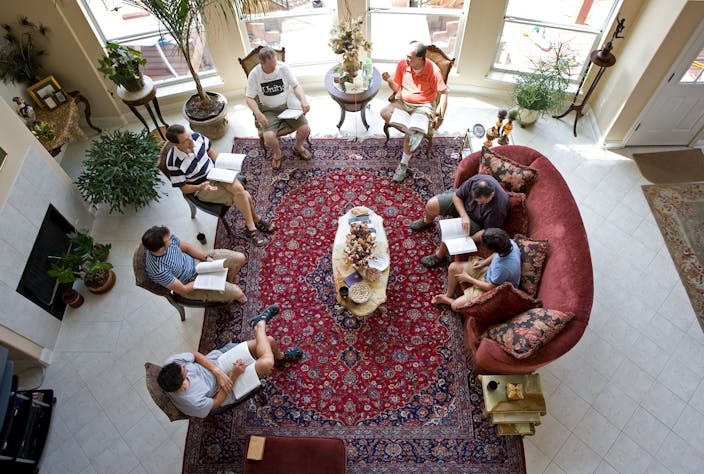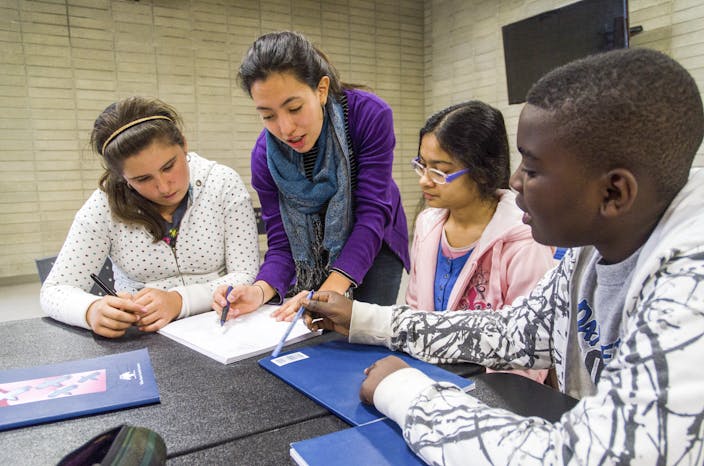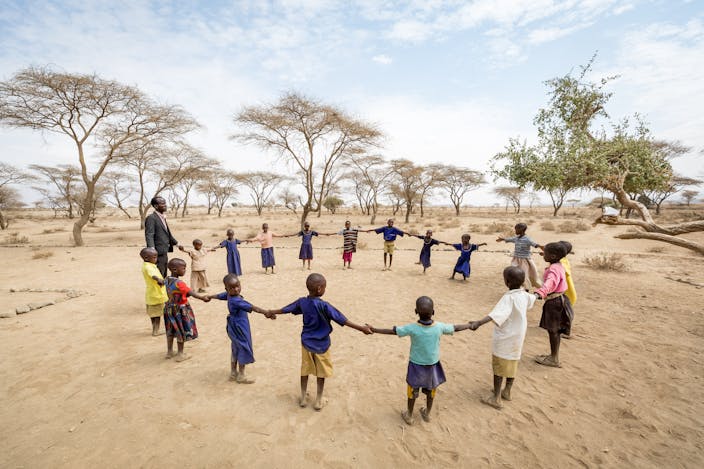Spiritual education for all ages
The Ruhi Institute conducts courses and educational programs for diverse age groups, from the tender age of 5 or 6 to adulthood. Provided below is a description of three of its current endeavors, together with a list of the materials used in each one. It should be noted that the lists will continue to undergo change as experience in the field advances, and new titles will be added as an increasing number of curricular elements under development reach the stage where they can be made widely available.
Main sequence of courses, for those 15 and older

Below are the current titles in the series designed by the Ruhi Institute for youth and adults. The books are intended to be used as the main sequence of courses in a systematic effort to enhance the capacity of youth and adults to serve their communities. The Ruhi Institute is also developing a set of courses that branch out from the third book in the series for training teachers of Bahá’í children’s classes, as well as another set from Book 5 for raising up animators of junior youth groups. These, too, are indicated in the list below.
Junior youth spiritual empowerment program

Since its inception, the Ruhi Institute has attached special importance to its work with youth aged 12 to 15; specifically, it has sought to understand the dynamics of maintaining small groups in local communities that offer a setting in which young people can discuss ideas and form a strong moral identity. The Institute has found the titles noted below useful for this purpose. They are divided into two categories and are listed in order of difficulty. Several other titles will eventually be added to the Institute’s program for the spiritual empowerment of junior youth.
All of the titles are concerned with developing language skills and the power of expression. Some in the first category also address mathematical concepts and social issues, while others seek to prepare young people to approach the investigation of physical, social and spiritual reality in a scientific manner. Though the moral concepts in the materials in the first category are drawn from the Bahá’í teachings, they are not religious in nature, nor do they treat subjects that are specifically Bahá’í. Many kinds of organizations, including academic institutions, will therefore find them useful for their educational programs with junior youth. The current titles in this category are:
In its own work with young people, the Ruhi Institute includes the items in the second category, which address Bahá’í-related subjects. Among these subjects are those with which adolescents most often struggle, such as free will and predestination and the complex relationship between will and knowledge. Currently, the following titles are in this category:
The spiritual empowerment program is offered to junior youth in small groups, usually formed in a village or neighborhood by an older youth. The Ruhi Institute is developing a series of branch courses, beginning with Book 5 in its main sequence, to prepare older youth and adults to serve as “animators” of such groups. If you are interested in reading comments from those who have participated in the program, click here.
Bahá’í children’s classes for spiritual education

Lessons for Bahá’í children’s classes, beginning with Grade 1 for those aged 5 or 6, are presented in the context of teacher training. While people everywhere are eager to have their children participate in classes for their spiritual education, experience has shown that the challenge lies in training an adequate number of teachers to meet this demand. The Ruhi Institute is developing a set of courses that branch out from Book 3 for training teachers to conduct classes for children up to the age of 11 or 12. Below are the courses currently available.
The requisite materials for the classes themselves are presented in each book, and sample lessons and some other resources can be found here. Especially during the early years of childhood, great emphasis is placed on the development of spiritual qualities and on those beliefs, habits and patterns of conduct that constitute the essential attributes of a spiritual being.